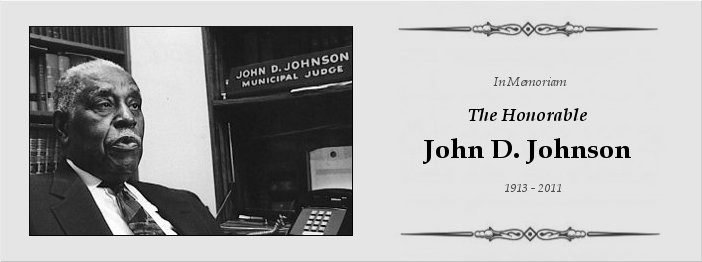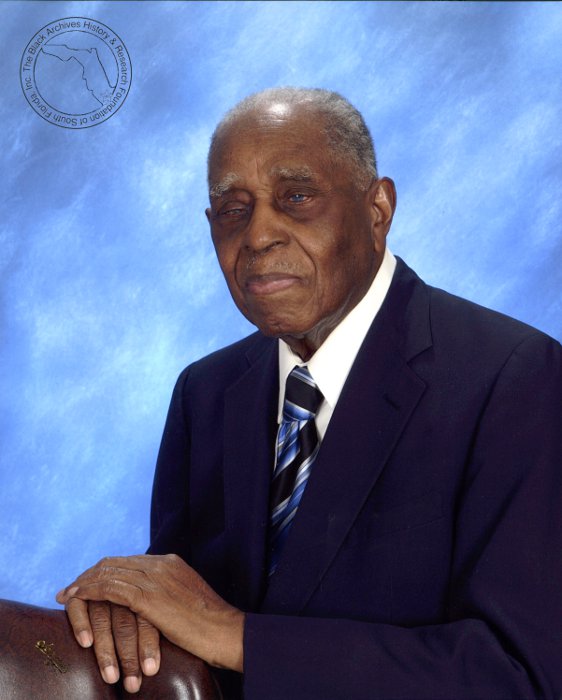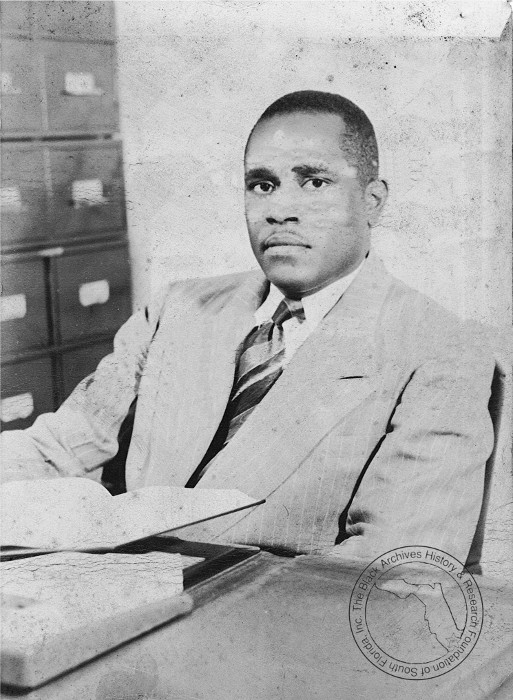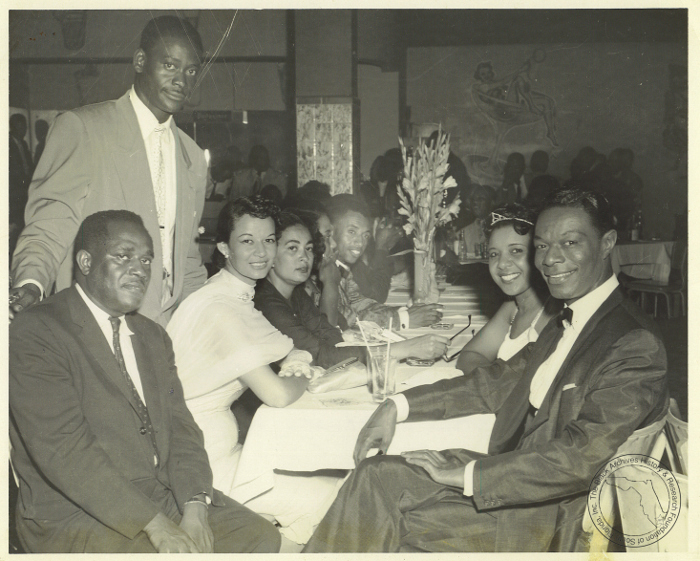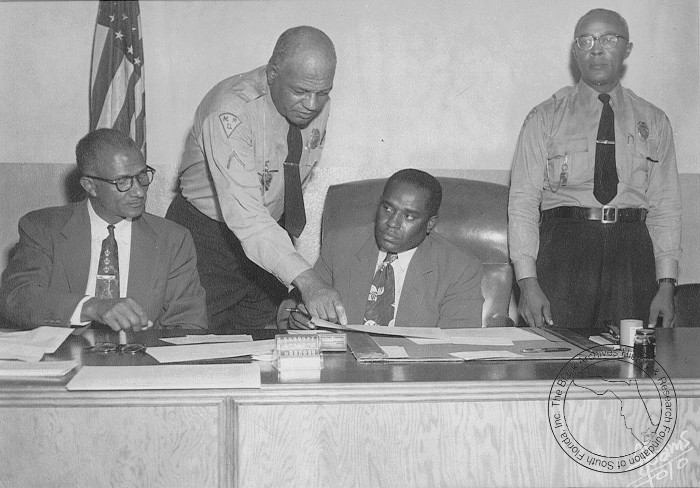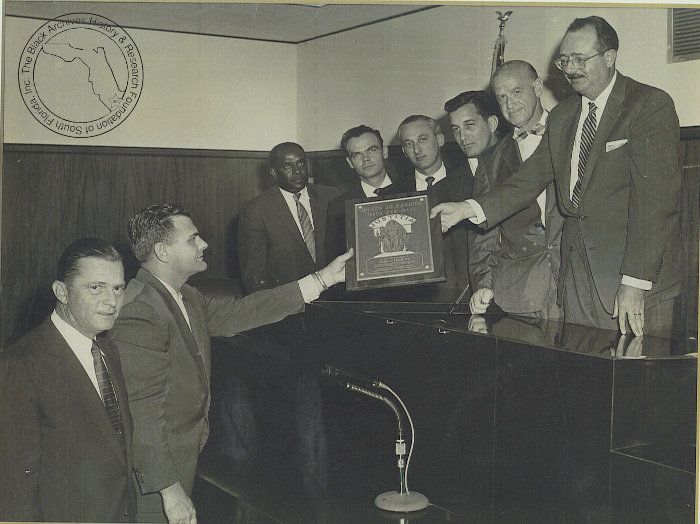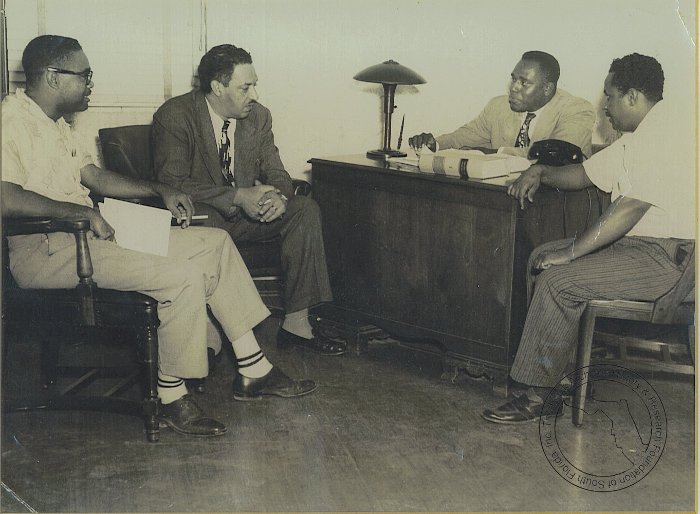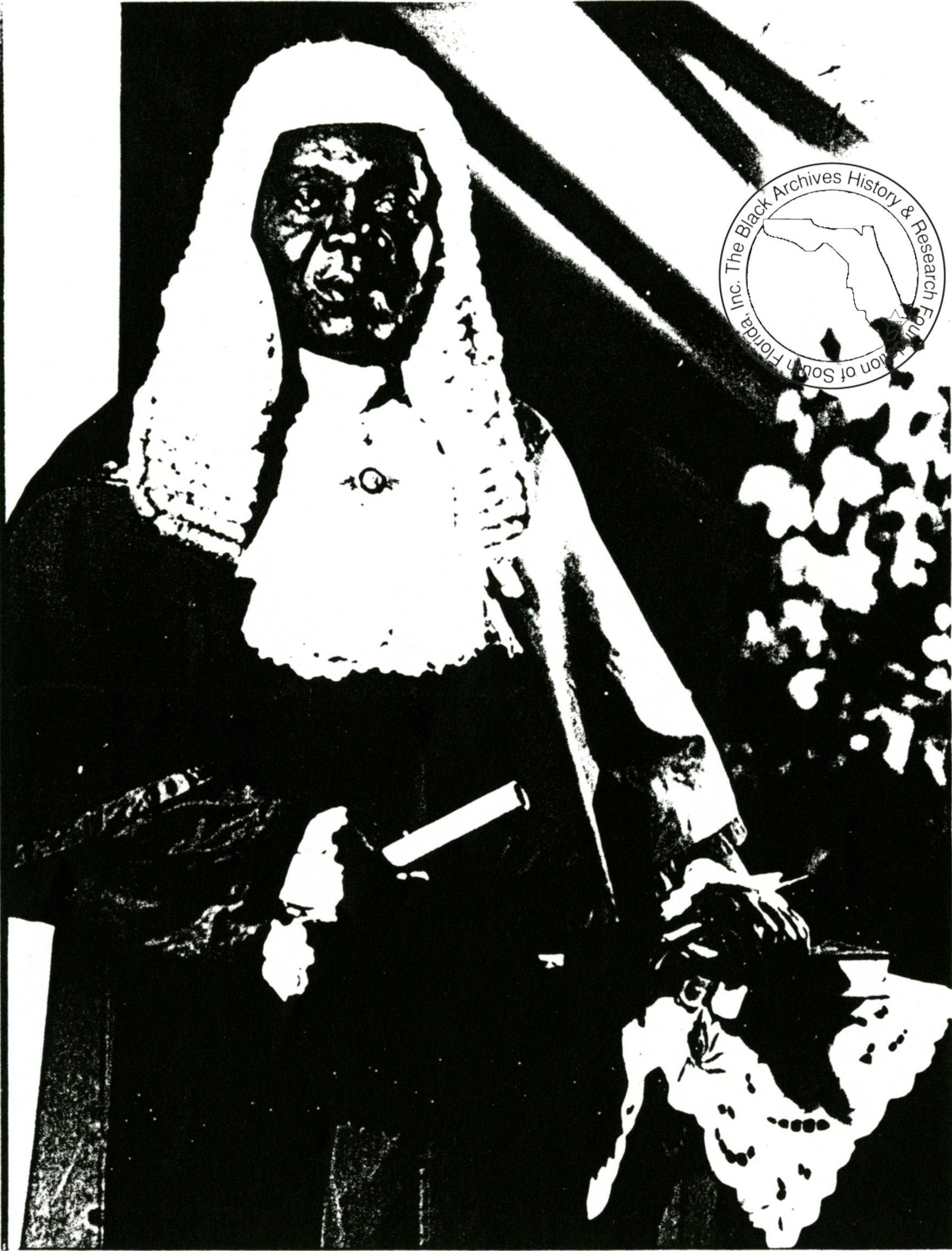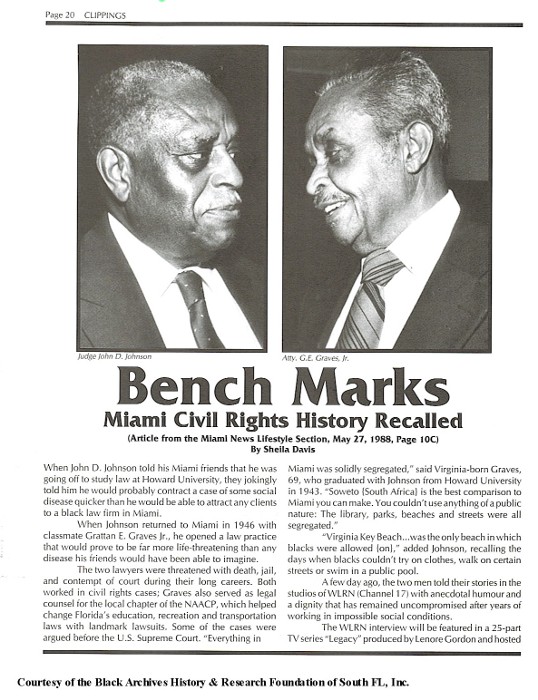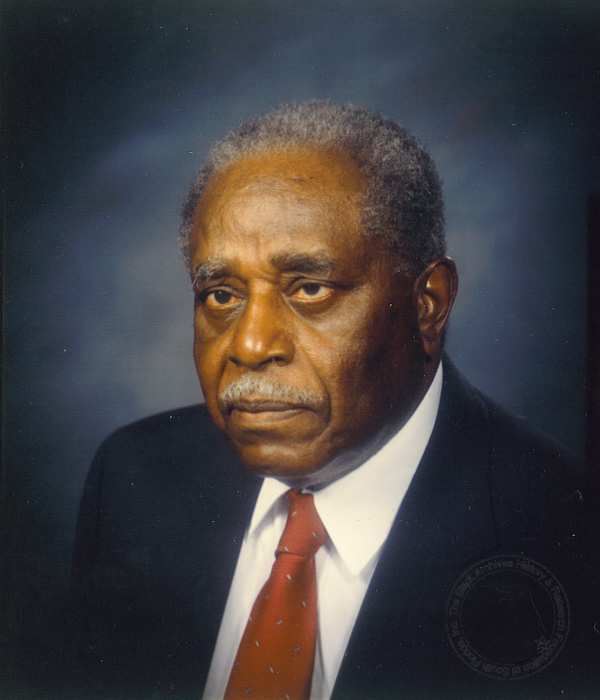The Black Archives Honors the Late Honorable Judge John D. Johnson
The Honorable Judge John D. Johnson passed away on Tuesday, July 12, 2011. He was born on December 2, 1913 into one of Miami’s most important pioneer black families; John Johnson was the youngest of seven children born to Bahamian immigrants Mr. and Mrs. Samuel D and Ida Ellen Roberts Johnson. The family settled in Miami’s Overtown, then called Colored Town, in 1903 by way of Harbour Island, Bahamas and Key West, FL. They became the first black family in South Florida to have all seven children complete college and return to Miami as professionals.
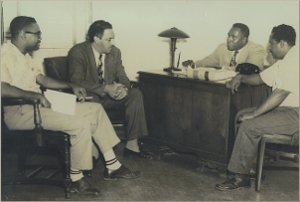
John Johnson graduated from Miami’s Booker T. Washington Senior High School, class of 1931, Johnson then went on to earn a Bachelor of Arts degree from West Virginia State College where he was the president of the Historical Society and a member of the newspaper staff and varsity debate team. Johnson was also designated as the official college host for Carter G. Woodson who is considered the Father of Black History, during his week-long visit to Virginia State. He later earned a law degree from Howard University where he was the Chief Justice of Sigma Delta Tau Legal Fraternity. Johnson then went on to work in Washington, D.C. at the Pentagon before returning to Miami in 1947 with his bride and college sweetheart, Johnalie Elizabeth Dennis Johnson, and passing the Florida Bar that same year. Upon relocating to Miami he joined Alpha Phi Alpha Fraternity.
Johnson’s first law office was located in his oldest brother’s X-Ray Clinic at 171 Northwest 11th Street. His extraordinary legal career spanned close to a half a century, from passing the Florida Bar and beginning practice in 1947 to retirement in 1991. During his career as a top lawyer, and The City of Miami’s second black municipal judge 1955-1959 (Florida’s fourth black judge), Johnson’s efforts along with other notables such as Attorney G.E. Graves, Thurgood Marshall, and Frank Reeves helped to knock down racial and social barriers.
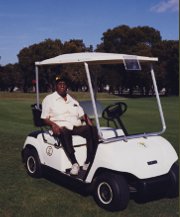
They won cases that led to racial integration in places such as the Orange Bowl Stadium (1949) and Miami Springs Golf Club, establishments that once exercised the segregated traditions of the Jim Crow era. Even after receiving threats against his life, he and his colleagues defended black community figures such as Father Theodore Gibson and Reverend Edward T. Graham from unjust incarceration at the hands of the Charlie Johns Legislative Committee who also tried to outlaw the National Association for the Advancement of Colored People (NAACP) in Florida.
Judge Johnson was also a community architect, who helped to develop and establish community benefit programs such as Dade County’s Food Stamp Program, The Family Health Clinic and the Model Cities Legal Services Program. These programs provided well needed benefit to communities that had been long overlooked by the governing structure of the day.
Deservedly so, the Honorable Judge Johnson has been honored by The Eleventh Judicial Circuit of Florida, West Virginia State University, the Florida NAACP and a host of other reputable organizations.
Please click here to view a photographic slideshow of the late Honorable Judge John D. Johnson

